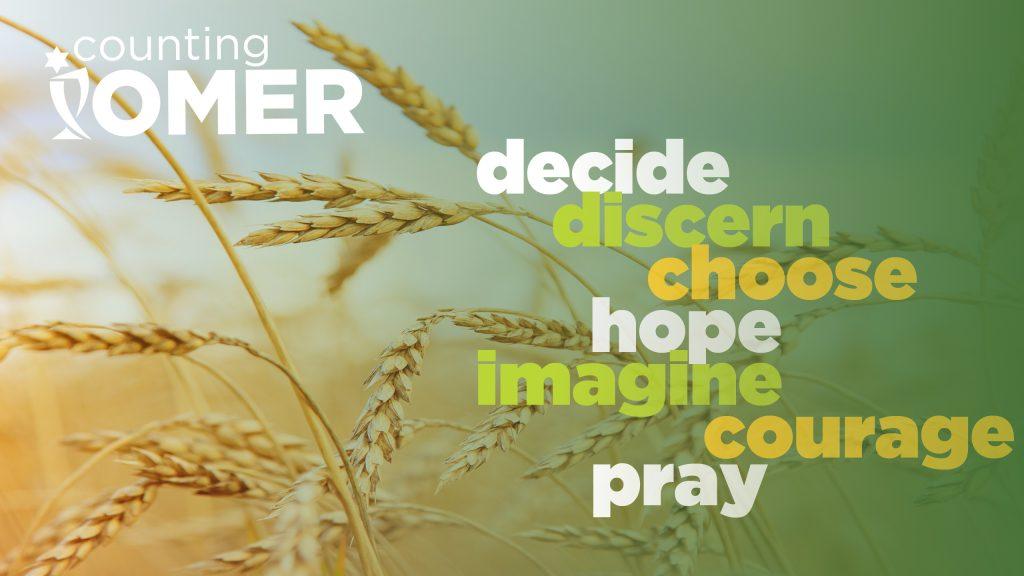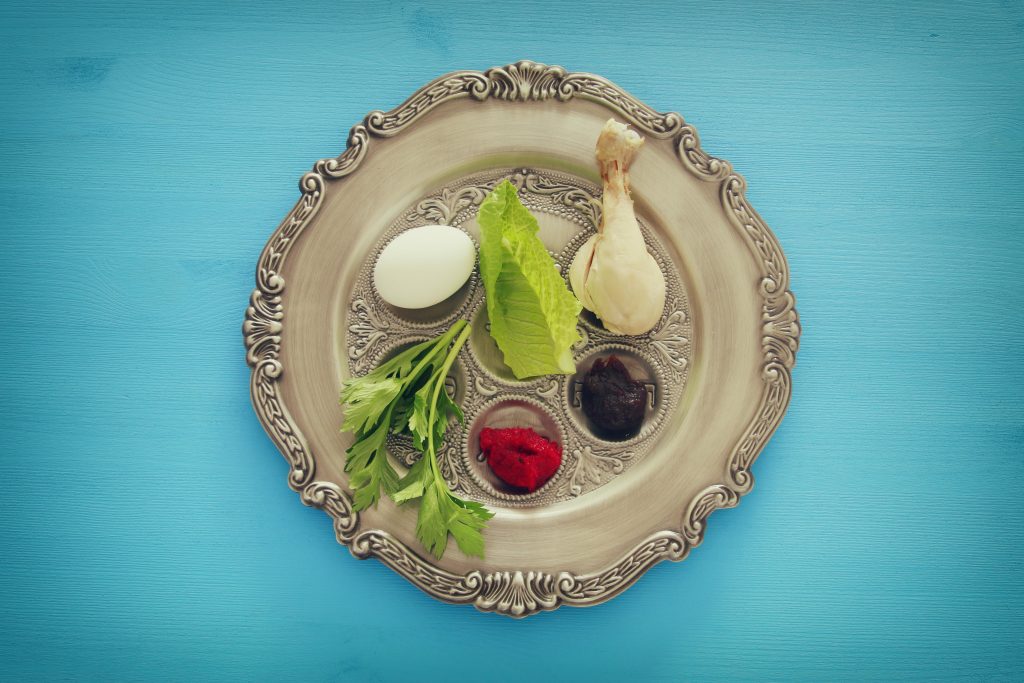The Omer is the 49-day period between the celebration of Passover and the Festival of Shavuot. Beginning with Passover’s celebration of our liberation from Egypt, it became the custom to count the 49 days of the grain harvest leading to Shavuot, marking each step in our journey to Mount Sinai to receive the gift of Torah and revelation.
Temple Beth El will mark the counting of the Omer this year through the wisdom of Rabbi Karyn Kedar’s book Omer: A Counting. Each of the seven weeks of the Omer will focus on a theme related to growing our spiritual awareness and liberating ourselves from all that keeps us from feeling a sense of spiritual wholeness.
This week’s theme is CHOOSE.

To choose! To acknowledge! To affirm! Choice is empowerment when we choose to live differently, to be better. With every choice, we defy inertia, with every choice we expand our sense of possibility. With every choice we become emboldened. But it isn’t easy, nor is it linear. We go back and forth between choice and discernment, reaffirming our decisions, reexamining everything. The spiritual path is a zigzag, a switchback up a mountain. It is exhausting, riddled with doubt and setbacks. There are so many ways to get us to where we need to go.
בָּרוּךְ אַתָּה יְיָ אֱלֹהֵֽינוּ מֶֽלֶךְ הָעוֹלָם, אֲשֶׁר קִדְּשָֽׁנוּ בְּמִצְוֹתָיו, וְצִוָּֽנוּ עַל סְפִירַת הָעֹֽמֶר
Baruch Ata Adonai Eloheinu Melech HaOlam Asher Kidshanu B’Mitzvotav V’Tzivanu Al Sefirat HaOmer.
Blessed are You, Adonai our God, Ruler of the Universe, who sanctifies us with mitzvot, and commands us concerning the counting of the Omer.
Shekhinah [God’s presence] does not reside except in a heart which is contrite… A person must prepare a lovely dwelling place in his heart for the Shekhinah. This means that an individual has to act humbly and avoid losing his temper. For when he behaves in an arrogant manner, the Shekhinah takes flight and a handmaiden rules in her mistress’ place.
Elijah de Vidas, in Safed Spirituality: Rules of Mystical Piety,
The Beginning of Wisdom, translated by Laurence Fine
Questions to Consider:
- In the most challenging moments, what drives our emotions and our responses?
- How can we choose to make room for the compassionate, Holy One?
Anger and tenderness: my selves
And now I can believe they breathe in me
As angels, not polarities.
Anger and tenderness: the spider’s genius
to spin and weave in the same action
from her own body, anywhere–
even from a broken web.
“Integrity” by Adriene Rich
In A Wild Patience Has Taken Me This Far
Questions to Consider:
- What happens when the most opposite parts of ourselves work in harmony with each other?
- If faced with a list of all of our characteristics, which ones would you choose for yourself?
Raise me upon a rock…
lead me on a level path…
That I might enjoy the goodness of God,
In the land of the living
Psalm 27:5, 27:11, 27:13
Question to Consider:
- What sort of vantage point do you need in order to make choices?
To know when to reach and when to yield takes years of practice, years of prayer. To know when to be still takes even longer.
Rabbi Karyn Kedar
Questions to Consider:
- What guides your decision of when to reach and when to stop?
- How have your processes changed throughout your life?
“In the World to Come,” taught Rabbi Zusya of Hanipol, “they will not ask me: ‘Why were you not more like Moses our teacher?’ They will ask: ‘Why were you not more like Zusya?’”
The Classic Tales: 4000 Years of Jewish Lore,
Edited by Ellen Frankel
Questions to Consider:
- What choices do you make that represent who you are at your most authentic?
- What support do you need in choosing to become who you were always meant to be?
We find in the fields of Nature no place that is blank or barren; every spot on land or sea is covered with harvests, and these harvests are always ripe and ready to be gathered, and no toiler is ever underpaid. Not in these fields, God’s wilds, will you ever hear the sad moan of disappointment, “All is vanity.” No, we are overpaid a thousand times for our toil, and a single day in so divine an atmosphere of beauty and love would be well worth living for, and at its close, should death come, without any hope of another life, we could still say, “Thank you, God, for the glorious gift!” and pass on. Indeed, some of the days I have spent alone in the depths of the wilderness have shown me that immortal life beyond the grave is not essential to perfect happiness, for these diverse days were so complete there was no sense of time in them, they had no infinite beginning or ending, and formed a kind of terrestrial immortality. After days like these we are ready for any fate– pain, grief, death or oblivion– with grateful heart for the glorious gift as long as hearts shall endure. In the meantime, our indebtedness is growing ever more. The sun shines and the stars, and new beauty meets us at every step in all our wanderings.
Meditations of Join Muir: Nature’s Temple,
Edited by Chris Highland
Questions to Consider:
- When looking ahead and seeing both light and dark, good and bad, how can we choose the good?
- In a full field of life, covered with harvests, and water, and experiences, how do you discern what is right for you?
Dearest God,
Creator of light,
You set before me
blessing, life, goodness.
Guide me, comfort me.
Through my longing,
gently urge me to find my life’s purpose.
Like the grasses of the field
bend to the wind
I bow, humble.
I choose life.
Question to Consider:
- How do you choose life?








